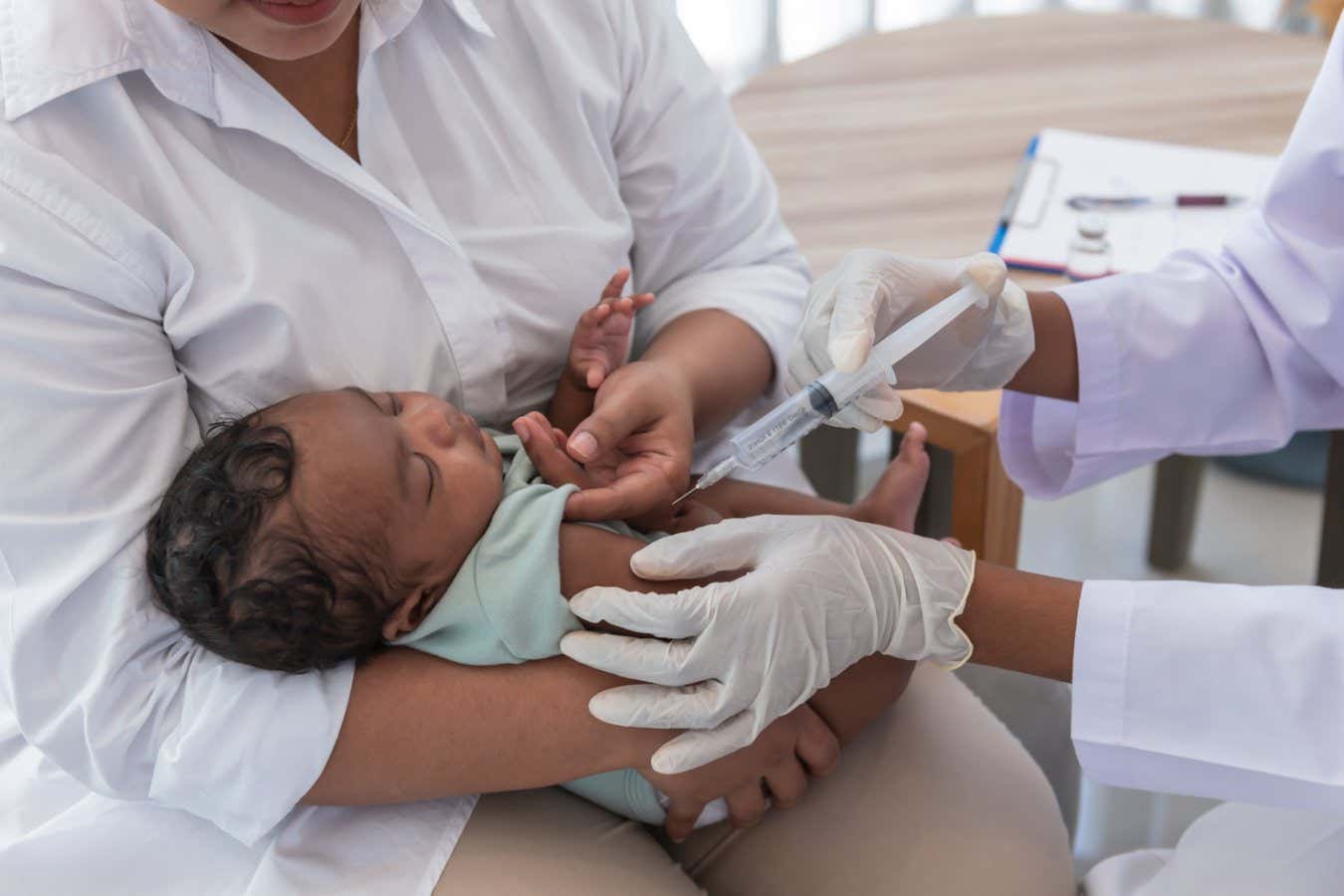When an RSV vaccine became available for use during pregnancy, it offered a natural experiment between various countries to see how it compared to a one-time antibody injection
By Grace Wade
3 June 2025
A one-time antibody injection against RSV is available for infants in some countries
Shutterstock / Anatta_Tan
An antibody treatment for respiratory syncytial virus (RSV) appears to be more effective at protecting infants from severe illness than vaccination during pregnancy.
About 100,000 children worldwide under the age of 5 die from RSV each year. Currently, there are only two ways to immunise infants against the virus. The first is a vaccine given during pregnancy, which passes antibodies to the fetus and protects babies for the first six months of life. The second is a one-time antibody injection, called Beyfortus, administered to infants shortly before their first RSV season or within one week after birth.
Read more
The new drugs preventing allergic reactions to peanuts and other foods
Both therapies only became available recently. For example, the US Food and Drug Administration approved Beyfortus for infants in July 2023 and the maternal vaccine a month later. The therapies are approved elsewhere too, including in Australia, Japan and several European countries.
Oliver Martyn at the French pharmaceutical company Sanofi and his colleagues used real-world data to better understand the efficacy of each approach. Sanofi manufactures Beyfortus in collaboration with the UK biotechnology company AstraZeneca.
The researchers analysed RSV hospitalisation rates in the UK and Spain among infants 1 year old and younger between June 2022 and May 2025. During the 2024 to 2025 RSV season, the UK offered only the maternal RSV vaccine to protect infants. Meanwhile, Spain offered only Beyfortus through its public healthcare system; the maternal RSV vaccine could be purchased there by private prescription.
